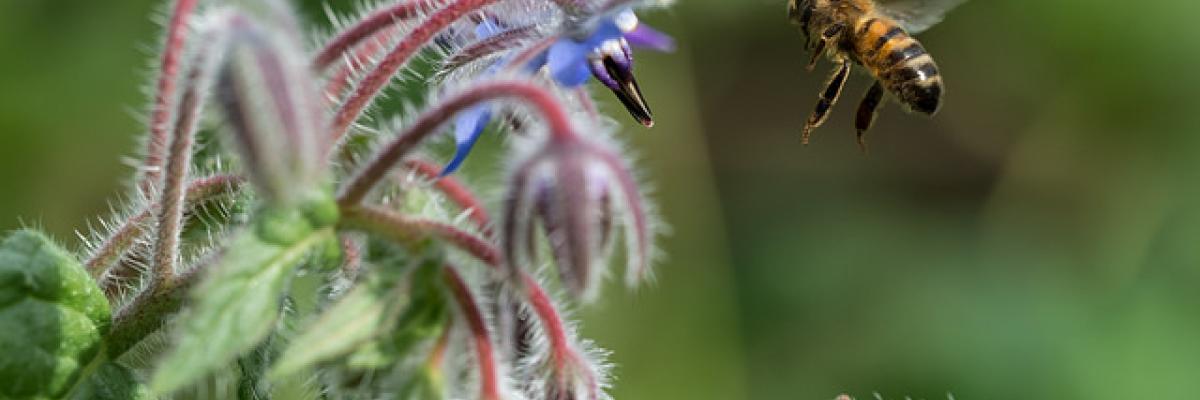

Study shows bee-friendly crops create a hungry gap for rarer bees
View the website
This online article provides some insights into a study recently published in Biological Conservation; ‘Pollinator-Friendly management does not increase the diversity of farmland bees and wasps.’ The research was undertaken by Sussex University and funded by the Game & Wildlife Conservation Trust and the Natural Environment Research Council.
The article outlines that the three-year study investigates whether or not current pollinator-friendly management has provided the right conditions for all pollinating insects, and whether it has helped increase the diversity of all farmland bees and wasps. This is based on the knowledge that development of flowering habitats is currently predominantly aimed at bumblebees (with large colonies and long foraging range), and not the wider bee and wasp communities. There has to date been little assessment on the response of other wild bees, despite the fact that these other bees make up the large majority of species diversity.
- Pollinators provide a crucial service in pollinating our crops and putting food on our table.
- This study showed that although bumblebees and honeybees foraged widely within sown flower habitats that are recommended within flower-rich agri-environment schemes, the majority of bee species preferred naturally occurring wild plants that are not currently included in pollinator mixes. They are commonly found in uncultivated areas of farmland i.e. field margins, access tracks and hedgerows.
- In their current form, pollinator-focused agri-environment schemes do not significantly increase floral diversity at the farm level and are therefore of limited use to the majority of bee species. This suggests that we need to rethink the type of flowering crops that we grow.
- The study also identifies that as well as foraging areas, bees and wasps require suitable nesting habitat to complete their lifecycle. Cavity nesting bees and wasps struggle to find nesting spaces. The availability of nesting sites for ground nesting species can also be an issue.
- Current management techniques described as 'pollinator friendly' appear to only benefit certain pollinators; predominantly a small number of bumblebee species and honeybees. It is important to maintain plant diversity in farmland, especially around hedgerows and in woodland areas.
